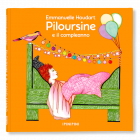MARVELL ANDREW
 Andrew Marvell (1621-1678)
Andrew Marvell (1621-1678)
Poet and satirist, son of the Rector of Winestead, Yorkshire, where he was born and educated. After school, he left for many continental countries. He sat in Parliament for Hull, proving himself an incorruptible member, with strong republican leanings. In spite of this he was a favourite of Charles II, who offered him a place at Court, along with a huge amount of money, £1000, both declined. In his own time he was best known as a powerful and sharp political writer.
After the Restoration he wrote against the Government, and the best work ranked among his political writings was probably the Growth of Popery and Arbitrary Government in England (1677). He was also the author of an Historical Essay regarding General Councils. His controversial style was lively and vigorous, but sometimes coarse and vituperative. His fame now rests on his poems which, though few, have many of the highest poetical qualities. Among them, the best known are The Emigrants in the Bermudas, The Nymph complaining for the Death of her Fawn, and Thoughts in a Garden. Over the last one, Palgrave says that “it may be regarded as a test of any reader’s insight into the most poetical aspects of poetry,” and his Horatian Ode on Cromwell’s Return from Ireland.
The town of Hull voted him a monument, which was, however, forbidden by the Court. His appearance is thus described, “He was of middling stature, pretty strongset, roundish-faced, cherry-cheeked, hazel-eyed, brown-haired.”
From Biographical Dictionary of English Literature - the Everyman Edition of 1910
links: - Andrew Marvell home page - To His Coy Mistress: a translation in dutch |






